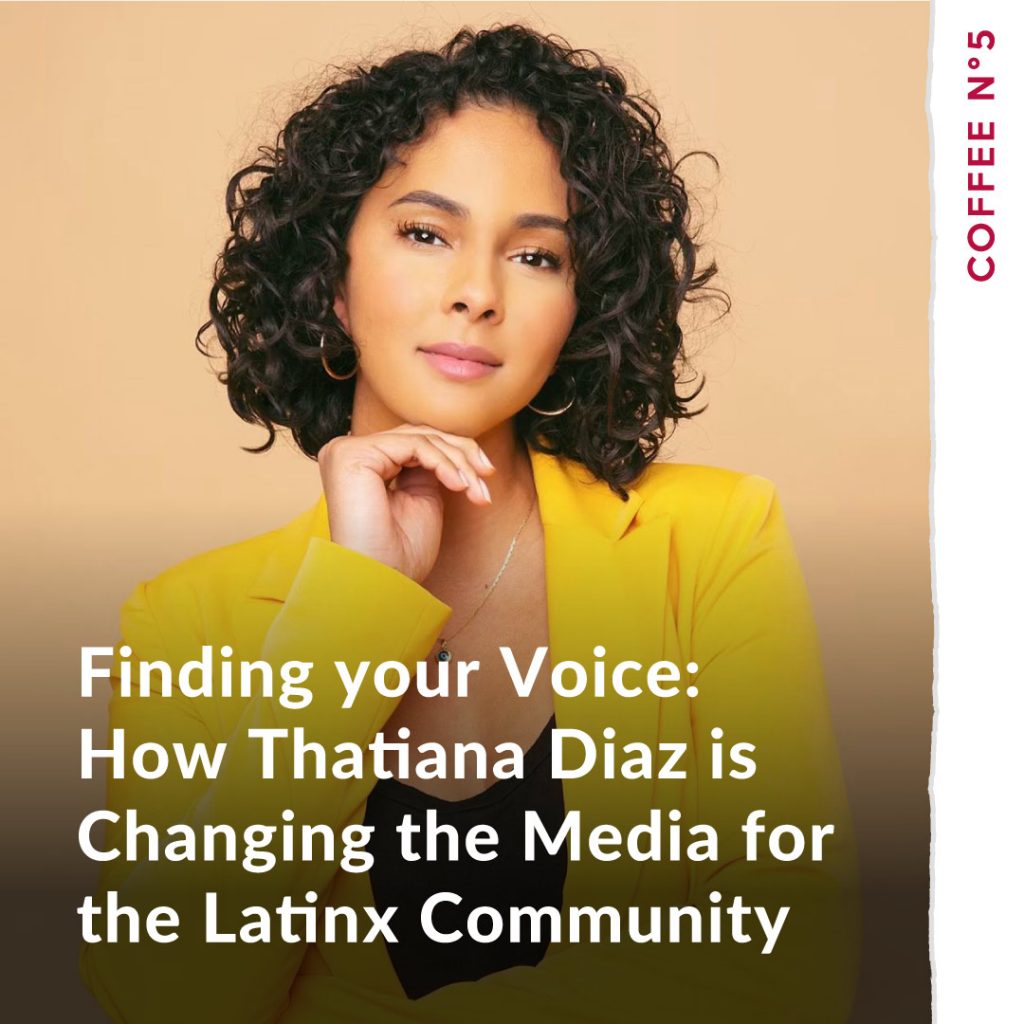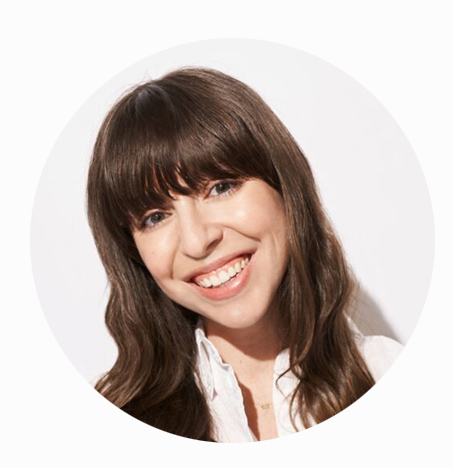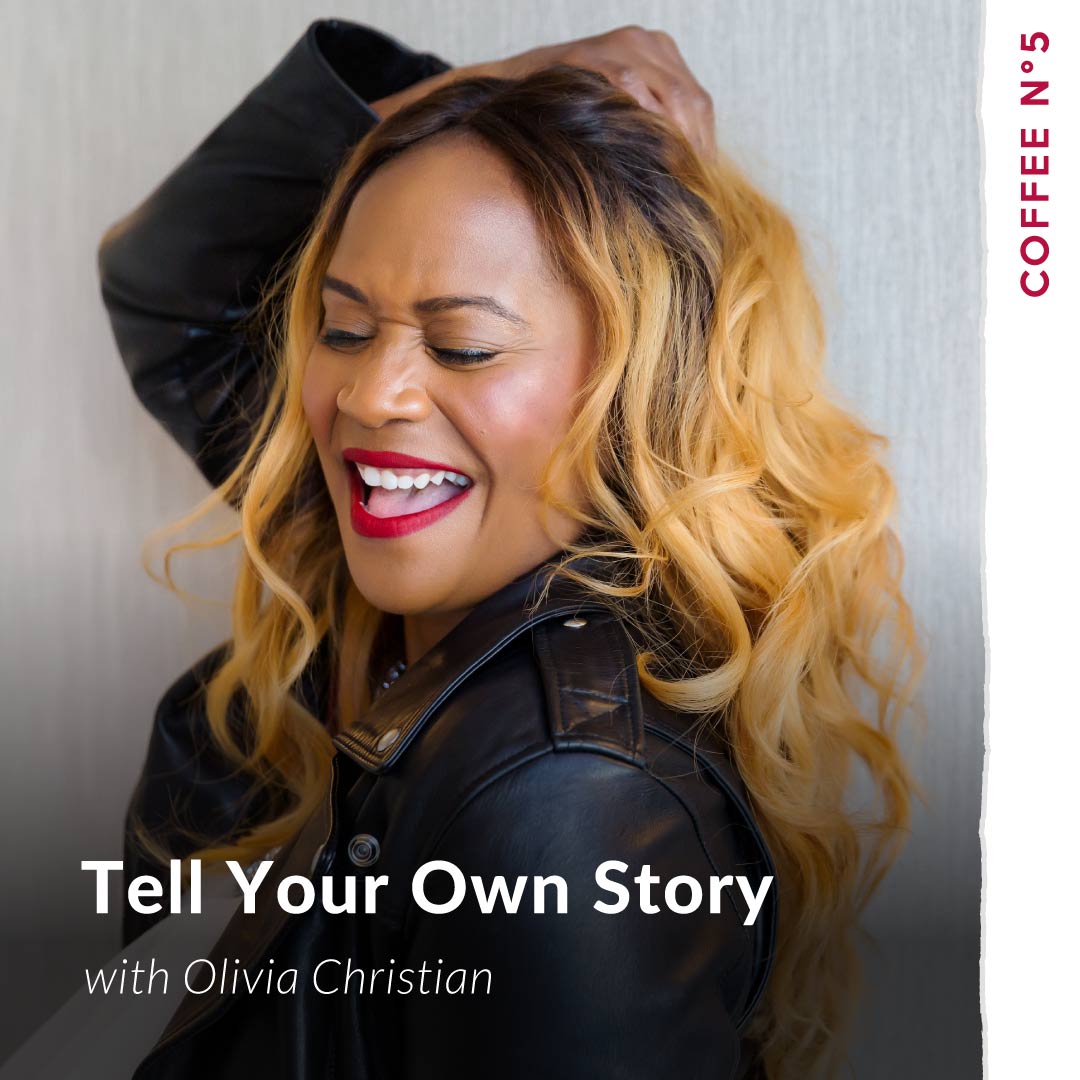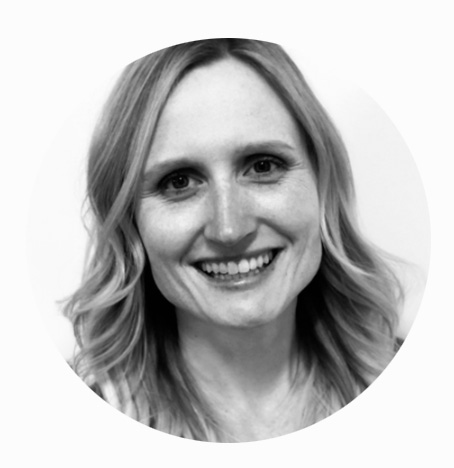SPEAKERS
Thatiana Diaz., Lara Schmoisman
Lara Schmoisman
This is Coffee Nº 5, I’m your host, Lara Schmoisman. Thank you so much for being here and Coffee Nº 5. And today we are with Thatiana Diaz. Thatiana reminds me a lot, a lot of so many woman’s that I met during my life in, in here in the United States and so many people that they have all these amazing cultural backgrounds from every culture. That’s what I fell in love in LA that there were so many ethnicities and you learn how to embrace it. Welcome, Thatiana first. And then I want to talk to you a little bit about… okay, you made a career, you’re born and raised here in the United States. And you made a career of being in publications in for the Latinx population. So how did that happen? How did you start? Because I know that very young, you start in Seventeen. Right? How did that happen? Give us a little background story.
Thatiana Diaz.
It’s actually very interesting. So when I graduated, I had a very tough time finding a job. I had graduated in May of that year, get hired until October, but I got a job offer from People en Español on but I also had gotten a job offer at the same time for a very mainstream New York City based newspaper that was highly recognized. And I had to choose between going into you know, this general market newspaper or going to People en Español and speaking to Latinx audiences, and for me, growing up around so much diversity. I grew up in Queens, New York. And you know, the community that I grew up in, there was so many different Latinx communities, I grew up with Ecuadorians Peruvians Mexicanos, Dominicans. And growing up around that I wanted to continue to represent the Latinx community within media, because the reason that I joined media to begin with was because myself in the industry, I didn’t see myself in the byline, I didn’t see myself in the articles, I didn’t see myself in anything. And so I was very much inspired to, like, enter this industry. And for me, it was very easy decision to just go to People en Español and build my, you know, my career there. And what I was able to do, and connecting with our communities not only was able to grow a deeper bond with my culture, but I was also able to see what I was able to create inspired just by being a part of a team.
Lara Schmoisman
I’m so glad that you brought up that was inspiring when I moved here another tough reality. I moved to the US when I was 24, almost 25. And one of my reality shocks was that I met a lot of Latin people, and they were those slotted people that they were assimilating completely to the culture and like their background was gone. That’s one of the few ones but there were there, there were others trying to navigate being who they were. But there was also another ones who want to live only in the communities with the similar cultures. And I think it’s just so brave, what are you doing, I’m bringing these inspirational examples of Latin people succeeding in in this country and being who they are and respecting themselves for their culture and their values.
Thatiana Diaz.
Thank you, it does get hard, you know, you, you have the pressures of assimilating, like you mentioned, and our parents try to tell us to not stick out so much so that things aren’t rough for us. And I had parents on first gen. So my parents are immigrants from the Dominican Republic. And they were always worried speaking good English and making sure that I, you know, had my hair straight in so I didn’t stand out too much. And they did things out of love that now I fight against, because I want to have my curly hair, I want to wear my hoops. If I want to wear red lipstick, I’m going to wear it if I want to keep anguished or speak Spanish in the workplace, because I have someone that speaks Spanish there, I’m going to do that. And I’m not going to be afraid of standing out. But I’m also not going to be afraid of sharing the stories that need to be told because I didn’t grow up with those stories. And that heavily impacts you when you grow up. And you look up to what’s in the media. And you don’t see yourself represented that can really impact you and feeling alone and I don’t want anyone to ever feel that way. Especially first gen second gen future immigrants, Dominicans, any Latin x communities, I want them to feel like they’re actually being represented. And that’s a big part of what motivates me and my work
Lara Schmoisman
today, y’all are the editor of Refinery29. And it’s Somos, right.?
Thatiana Diaz.
Yes. Somos, we launched last May, the first Latinx under Refinery29.
Lara Schmoisman
And that’s amazing. So what do you find the stories to tell?
Thatiana Diaz.
I am It’s very audience first. So we started our social platform. And we really looked through the comments and within the articles audience wants to talk about. So it’s so amazing because we really want it to go with that audience first thinking that mentality. And now we have people who dm us and say, Hey, I would love it, if you could cover this, or, you know, they say, Hey, can you make a shopping guide of this. And it’s amazing that they have that comfort level of being able to come to us and know that we will want to provide for them, give them that platform, allow them to bring what they want to see to us. And see that happened. Because at the end day, our success is really their success. And we want everyone to feel like they’re a part of the growth of Somos. And our model is very freelance based. We work with a bunch of freelance writers, because we believe that passing the mic is important. Me as one Latina, I cannot represent 33 different countries, identities. So for us, it’s not me trying to sit here and say, I’m going to represent all of latinidad, it’s me passing the mic and allowing others to come. So we have a bunch of writers that pitch to us, tell us what they want to write about. And then we’ll work with them and share their stories.
Lara Schmoisman
That’s incredible. So if anyone has a story to share, they just need to go on pitch it to you?
Thatiana Diaz.
yes, they can dm us on social on Instagram, and will lead them to our email, and they could just pitch us whatever they want.
Lara Schmoisman
And that’s great. I love that here there’s something so focusing the stories that they’re impacted the Latin cultures, I mean, I would I would love for every culture to have, it brings me joy to see that people feel that they are represented
Thatiana Diaz.
Yes, mostly actually, even within our own stories. We have people that are self Asian, that are Italian, and they comment on our stories. And they say this resonates with me, because our stories aren’t, you know, they can hit home for many different cultures, there are things that are very relatable from one culture to another. I know that so our stories aren’t just for Latinx people to read them because you can be from a different culture and resonate with them or find something within the piece that really resonates with you. But for us, it’s important that either you walk away with something that you resonate upon, or you learn something about the Latinx community that this is particular to, and you walk away with more knowledge.
Lara Schmoisman
Okay, let’s talk about…because lately in the last few years, I’ve realized that there is a lot of advertising money also towards the Latin community. It’s like the big brands finally realize that there is a huge market opportunity because Latin people actually buy things things.
Thatiana Diaz.
They’re a big, big consumer group. But that’s where we have to be careful, because a lot what I’ve seen and what I what was very important with Somos, is we have to stop speaking to these communities, like they’re a number, stop seeing them as these dollar bills start talking to them. Like they’re just this is the number one shopping group. Yeah, but these are human, but we also need to accurately represent them. People think that being Latinx means being brown and just speaking Spanish when there’s so many different races,
Lara Schmoisman
oh, my God, look at me.
Thatiana Diaz.
There’s so many different races, cultures, there’s, there’s bicultural, there’s so many identities. There’s Portuguese, there’s the genus representation and languages. And I just think, thinking that you’re translating a few words, and putting someone who’s brown on the advertisement is speaking to those communities. And digging out, we covered them, that’s it, and we they’re gonna bring us their dollars,
Lara Schmoisman
It’s labeling and stereotyping.
Thatiana Diaz.
Exactly. Yes.
Lara Schmoisman
I mean, there’s something that I noticed. And I would like to have your input on this because even though it’s in Latin community, right now, you can say that there is first second third on right now is the even fourth generation.
Thatiana Diaz.
And those are so different, like, yes, that’s I’m saying there’s so many layers, and people have to understand and that’s why passing the mic and doing your research. Diversity doesn’t just mean race. diversity means looking into LGBTQ, that means looking into able disabled, that means looking into, you know, economic upbringing, access
Lara Schmoisman
and mixed cultures.
Thatiana Diaz.
Yes, mixed cultures. Yes, exactly. Because there’s, we have feature people that are Japanese and Puerto Rican, we have featured people that are, you know, there’s so many different cultures, and now cultures are mixing and blending. And that’s what you’re seeing everywhere. And we need to, we need to reflect that.
Lara Schmoisman
Well, I mean, I’m laughing Joe, and then I’m married to someone from the Middle East. So my kids have such a big mix. It’s so hard to put ourselves in the box.
Thatiana Diaz.
And we shouldn’t have to, we should not have to, and that’s what needs to be reflected in the media. And that’s what we want to show these stories allow people to speak on these different identities, upbringing and experiences.
Lara Schmoisman
We know discrimination exists, but at the same time, as we see these, these cultures mixing at some point, they diluted so much that they have a little bit of one and a little bit of other becoming something else. So that person is sometimes even good. discriminated from the culture that they feel that they belong more for being different.
Thatiana Diaz.
Yes, I resonated with that a little bit being Dominican American. And I did pageants once upon a time and I went to compete in Dominican Republic. I felt like I wasn’t Dominican enough for them. But then growing up being Dominican in America, I was, you know, always different. Growing up, I went to a predominantly white high school, and I was with an accent, I pronounced mispronounce words. And so I you feel like this DOI identity, which there’s privileges behind that, that should be acknowledged
Lara Schmoisman
Absolutely. I mean, it happened even to my son at school, he is as white as I am. But he’s half flatting. So and he got…because he said something to a Latin kid. And they said that he wasn’t allowed, because he’s white, but I was he half Latin. He doesn’t need to look, it’s who you feel you are.
Thatiana Diaz.
It’s an identity thing. And I think, that we need to, while we can, you know, acknowledge our privileges with the color of our skin and how we present ourselves when you walk into the room, I think there needs to be we need to allow ourselves to see that nobody is like, there’s just layers, and we need to allow ourselves to see people nuanced. I think we want to see everything as just one thing. And it shouldn’t be that way.
Lara Schmoisman
No, absolutely. And we need to stop putting things, things and people and sex religion, our ethnicity in boxes.
Thatiana Diaz.
Exactly.
Lara Schmoisman
And I believe that’s what you’re trying to do with it Somos.
Thatiana Diaz.
that’s exactly
Lara Schmoisman
to put people outside the box. And I love that. But what’s next for Somos? What’s the next step?
Thatiana Diaz.
So we want to be everywhere. We want to be on podcasts and video extensions. And we want to keep growing and bringing our stories to whatever platform we can, right now we want to continue growing, you know, we’re only a year old. It’s really exciting to see where we’re going. But we just feel like there’s more. So much more stories to be told. And no one is ever the same. And we’re not running short of stories. There’s just as we said, we have stopped putting people in a box. And that means opening the box and letting everyone tell the stories that they want to tell. And I’m so happy all the writers that are coming to us feeling comfortable and sharing their personal experiences. We just want to continue to be the platform that does that.
Lara Schmoisman
That’s awesome. Okay, I want to bring something up. I will say he wrote a lot, the other day, one email about it. I was very, very frustrated when Siri doesn’t speak Spanglish.
Ah, yeah, that’s another thing. Spanglish is so real. We wrote a story about this.
Lara Schmoisman
I know, that’s what I want to talk about. English is so real.
Thatiana Diaz.
It is. And we wrote about this on Somos, which is just like Somos, Spanglish and itself is a language. Sometimes I get stuck with a word, and I find myself in a meeting thinking of the word in Spanish, and it’s just like, it frustrates me. And I allow… because I tap into other people, and I’m like, hey, say the word in Spanish if you want when I’ve interviewed certain celebrities that are Latinax, and they are like, the word in Spanish, I’m like, oh, please say it in Spanish. But that’s the reality. Spanglish… when you grow up with English around you in school and your social gatherings, but you go home and speak Spanish, it’s…Yeah, it’s the reality. That’s, it’s it’s a language
Lara Schmoisman
it is. And I mean, I do it so much. And but also, I noticed, I mean, my team is all around the world. And we have a lot of people in different countries, but I realized that there are some words that you don’t have it in one language or the other. So you just create a mix. And I think that I love that because I love to see our language evolve.
Thatiana Diaz.
Yes, and that’s what it is. And I say that with identity to. Identity is ever evolving. latini that is ever evolving. Different cultures are ever evolving. And language is ever evolving. Even the word Latinx in itself that we use, that is something that people push back on a lot. But we need to understand that language is evolving, and you choose what you want to evolve with. So if you don’t want to use that word, that’s your choice, if you want identifies a certain way, that’s your choice. And what if you want to speak Spanglish or not or speak Spanish or not? Things are evolving, languages are evolving. And we just either go with the flow, adapt to it, or we just you know, it’s all a preference at the end of the day.
Lara Schmoisman
Yeah, absolutely. Tell me about three things that you do every day to keep your origins are something that connects you with your ethnicity, with your background.
Thatiana Diaz.
I think food. I think food is a big part of
Lara Schmoisman
Oh, food is huge for any culture. Yes,
Thatiana Diaz.
yes. Yeah. And I feel like that’s something that’s never changed about things that I grew up learning to cook or my fiance cooks all the time. He’s He’s the main chef of the family and but, but we are always cooking and the way we cook it’s rooted in our culture. So that’s very organic, and it’s in itself. I don’t go a day without speaking to at least one family member of mine.
Lara Schmoisman
That’s very latin by itself.
Thatiana Diaz.
My mom and grandma honestly if I don’t call I went missing something happened or they’ll act like I haven’t spoken seven two weeks, but it’s the wweetest thing and I love it.
Lara Schmoisman
My mother still has me in find my friends. So if I cannot answer at least she knows where I am.
Thatiana Diaz.
And then I would say music. It’s not every day, but I feel like if I’m not listening to it, I’m mumbling the words I feel like my culture really is rooted in the spirit of music that I listened to. And it’s it’s so many different genres, but I would say music is the third
Lara Schmoisman
Yes, somehow, I don’t know, for me growing in Argentina with Argentinian rock it’s something that you bring it with you, your grow with that I mean, right now I’d not so in tune with the new tunes, I really think that it makes us who we are. Music is so an important part of our life
Thatiana Diaz.
it is and it’s such a fascinating because it also gets you thinking and I we featured people who are trying to send the message so like not only is music just great to listen to but it and connects you to your culture. But sometimes I say a whole song from front to back. And my family will look at me like Oh, she because my Spanish isn’t perfect, but the fact that I could memorize lyrics is so fascinates them. So not not only does it connect with my culture, but also my language, my family’s language, and also sometimes the messages that people are trying to spread. Yeah, that’s how my parents really practice from TV.
Lara Schmoisman
Yeah, also even with television or films, I mean, I learned English watching television, basically. Okay, I want to thank you so much for being here today. I love having coffee or drinks or whatever with you and, and keep going with Be who you want to be. And that is what Somos means to be in.
Thatiana Diaz.
Yes, is we are and I want… that’s what we want. We want people to feel comfortable being who they are. Because I felt that pressure to not be who I was growing up, but that’s what I wanted to change in the industry. And that’s what I am pushing for. So thank you for having me.
Lara Schmoisman
Oh, thank you for being here. Thank you for joining us. If you like the show, remember to leave a review. I will really appreciate it. If you want to know more about marketing and and myself, follow me on Instagram. My handle is Lara Schmoisman. Was so good to have you here today. See you next time. catch you on the flip side. Ciao ciao.








